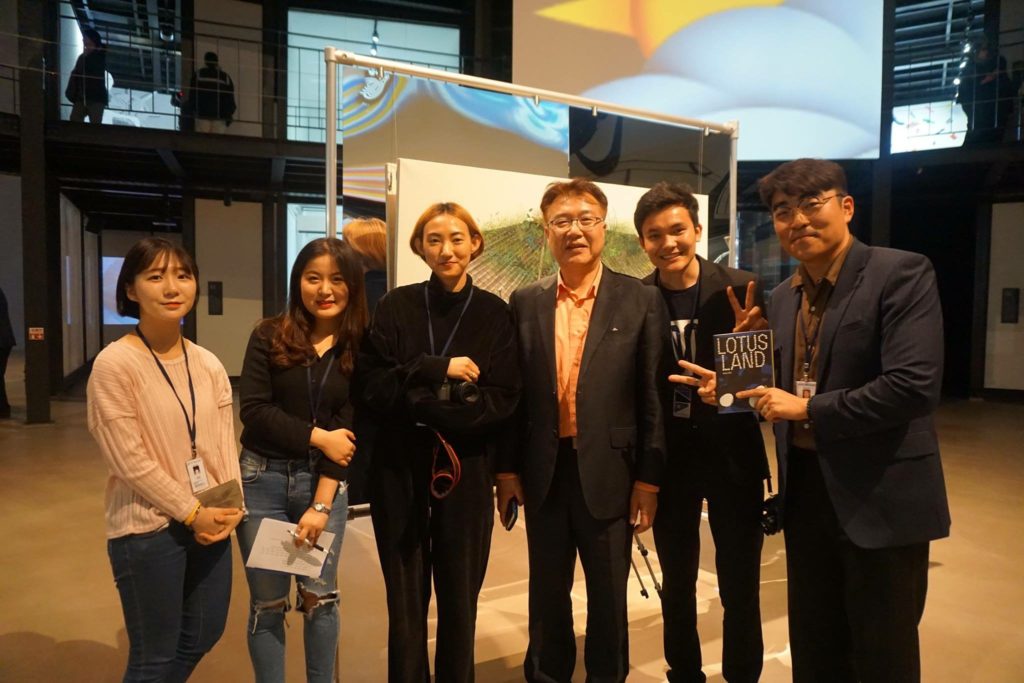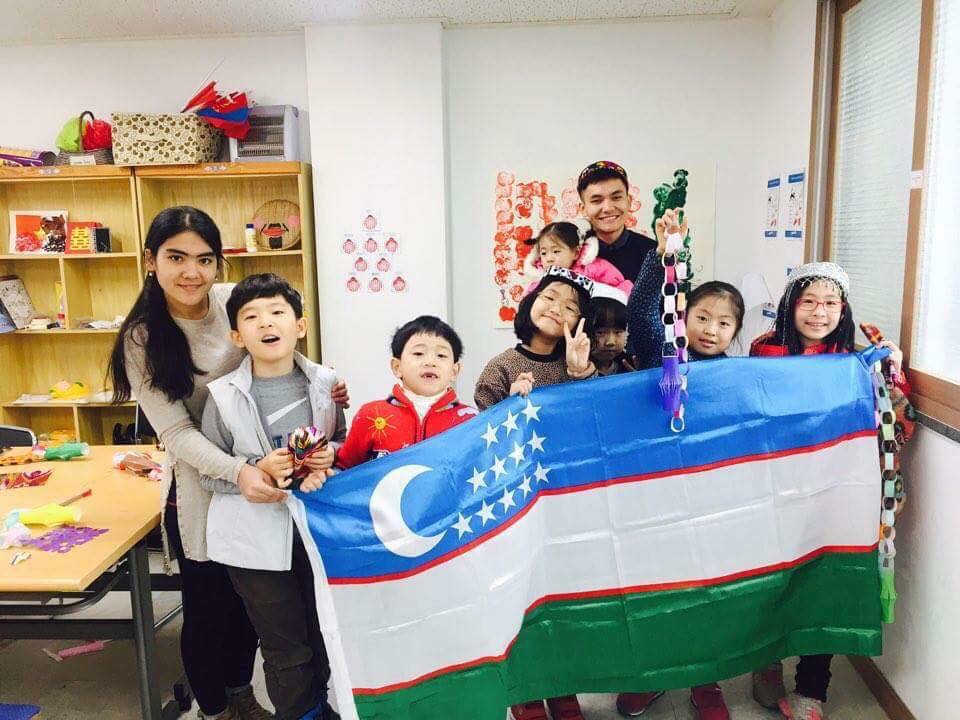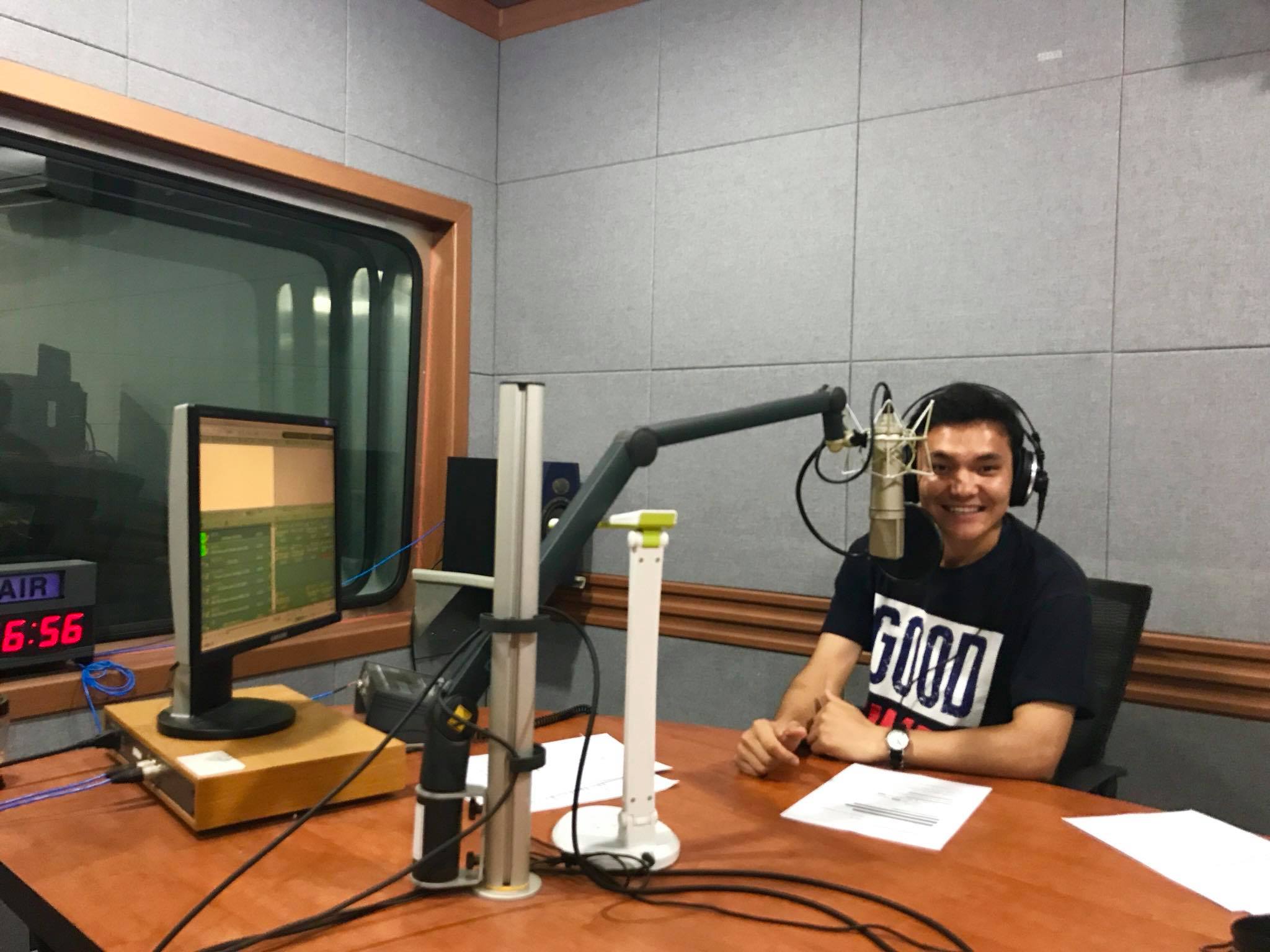Academic and Cultural Opportunities for Foreigners in Gwangju and South Jeolla Province
Written by Baha Komilov
Gwangju is a hub of culture, art, and democracy. The city offers experiences that many never thought they could have. I came to Gwangju three years ago as a student and wanted to get involved with the community. During my time here, I have participated in various academic and cultural activities that everyone can do. In this article, I will share academic and cultural opportunities that foreigners can take advantage of in Gwangju and South Jeolla Province, along with some of the application processes, tips, and benefits of these programs.

Asia Culture Center
The Asia Culture Center (ACC), located downtown, offers various art exhibits, seasonal festivals, a library, and much more for visitors. For example, expats and students who live in or around Gwangju may apply to become an ACC reporter. I had this job in 2017 and was mostly involved in covering ACC events, festivals, and art exhibits by writing articles in English. The job is paid, and you are given an ID card to use at some facilities of the ACC. Applicants are accepted each February. Please check out the ACC website or social media for more information.
Website: www.acc.go.kr
Address: 38 Munhwa-jeondang-ro, Dong-gu, Gwangju
Gwangju Foreign Language Network (GFN)
The Gwangju Foreign Language Network (GFN), the only English language radio station in town, is always looking for people to be a part of its shows or to even become a host. I was part of the GFN family for almost one and a half years, and it was one of my greatest experiences. I joined the show Hello Korea at first and later became a regular guest for six months on various shows. I was even a Viva DJ host for a month! There is also a student organization associated with the GFN called GFN Glocal Supporters that you might consider joining.
Please check the GFN website regularly! They always need people for fun shows. Participants are always paid and are usually given a certificate. No experience is needed, but you should be fluent in English.
Website: www.gfn.or.kr
Address: 177-39 Sa-dong, Nam-gu, Gwangju

UNESCO CCAP
Gwangju is the home of many people from all over the world, and many of these people have made their own communities. But unfortunately, many Korean people are not familiar with residents from other countries and their traditions. If you want to teach your own culture or language and spend time with Korean kids or adults, UNESCO in Gwangju needs you. The Cross-Cultural Awareness Program (CCAP) is a part of UNESCO in Korea and organizes cultural exchanges between schools and volunteers. You can apply to become a Cultural Exchange Volunteer (CEV) twice each year. They look for volunteers in February and March and again in August and September. The volunteer period is for three months, with the first semester being from April to June, and the second semester lasting from September until November. Contact the UNESCO staff in Gwangju for more information.
Email: unescogj@hanmail.net
Phone number: 062-223-2840
UNESCO KONA Volunteers (유네스코 코나 자원봉사단)
Do you love telling stories or reading books with adorable kids when you have free time? If so, there is a great opportunity for you to volunteer in town. The UNESCO KONA Volunteers organizes a Saturday program where volunteers read stories in English from their own country or tell fairy tales to young kids at the KONA Storybook Center, located at one of the small branches of UNESCO in Gwangju. The staff who works at the center are awesome and very friendly. For more information, please visit:
Websites: http://cafe.daum.net/konavolunteers or
http://cafe.daum.net/storybookcenter
(유네스코 코나 자원봉사단-영어전문지역사회봉사단)
Facebook: UNESCO KONA Volunteers
(코나스토리북센터-영어독서교육연구소)
Contact: Kim Young-im: 062-434-9887 or konacenter@gmail.com
Gwangju International Center (GIC)
Last but not least, the GIC unites locals and internationals in myriad ways. Currently, I am volunteering for the GIC Talk, which takes place on Saturdays in the GIC Hall at 4 p.m. The GIC offers numerous programs to people of all ages. Here are some GIC programs that you might be interested in:
Gwangju International Internship Program (GIIP): This is a 16 weeks internship in which you are assigned to one of the organizations in Gwangju. They recruit people who are either currently in Korea or overseas twice a year in January and July.
GIC Talk: Through this program, Koreans and international residents gather each week for a lecture and discussion session. Presenters cover a variety of social, cultural, and historical topics. We always need new faces, ideas, and experiences that our audience will want to listen to. It is easy and exciting to be a GIC Talk speaker, so why not volunteer to share your own story?

Global Culture Class: This is very similar to the UNESCO cultural program mentioned above. Volunteers spend two hours with kids, first during an hour-long presentation followed by an activity hour. The program is held on weekends and takes place at the GIC.
Gwangju News magazine: The Gwangju News welcomes individuals to volunteer for the magazine. It was the very first English language monthly magazine in Korea for the general public, and you can contribute to making it an even better magazine by sharing your talents, time, and stories.
For more information, please visit the GIC’s website, contact its representatives, and follow its social media accounts for updates.
Website: http://eng.gic.or.kr/
Phone: 062-226-2732~34
Email: gic@gic.or.kr
Facebook & Instagram: Gwangju International Center
Photographs courtesy of the ACC, GFN, GIC and CCAP
The Author
Baha is originally from Uzbekistan, but he considers himself a global citizen. He has been in Gwangju for three years and is a student at Chonnam National University, majoring in international relations and diplomacy. He’s a passionate language learner and is fluent in five foreign languages, with German being his sixth language.



